The enshittification of the internet
If you spend (a lot of) time online, chances are that you have heard of the enshittification of the internet and if you’re lucky, you already have an idea of what it is. You should, actually, because just about everything that is part of the internet has become a victim of it and it is impossible for you to have not noticed this sad fact.
However, just in case you have not been able to find the words to describe that sinking feeling you experience when your favorite website, app or store suddenly no longer works on your device or looks like crap or search results no longer bear any relevance to what you are trying to find (yes Google, I’m looking at you), here is what tech critic Cory Doctorow said about the term he coined to describe the decay of online platforms, in 2022:
Here is how platforms die: first, they are good to their users; then they abuse their users to make things better for their business customers; finally, they abuse those business customers to claw back all the value for themselves. Then, they die. I call this enshittification, and it is a seemingly inevitable consequence arising from the combination of the ease of changing how a platform allocates value, combined with the nature of a “two-sided market”, where a platform sits between buyers and sellers, hold each hostage to the other, raking off an ever-larger share of the value that passes between them.
Finding the right information on the internet has become a near impossible task. AI is messing up the query results in favor of Silicon Valley’s (and its clients’) business model. What’s worse: it makes sense. Sort of. After all: search engines perform searches, maybe Big Tech should have tried to design find engines.
The most popular search engines are fishing engines. While we fish for real useful information, they fish for our data.
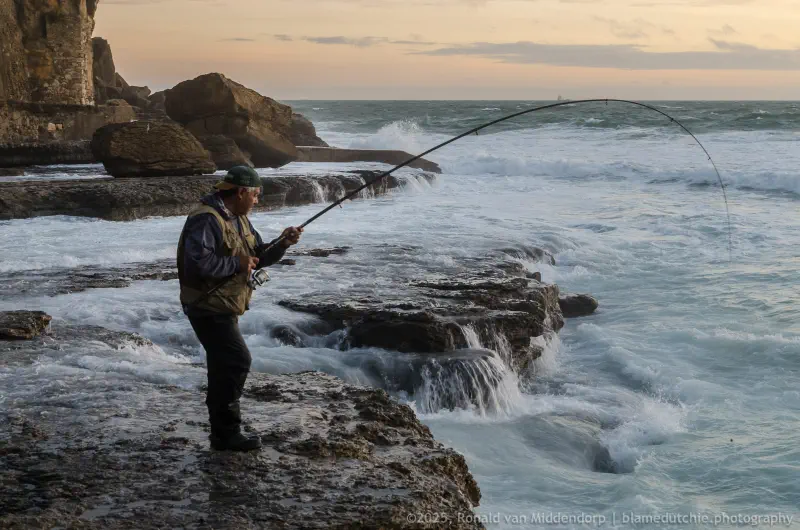
One of the platforms that fell victim to this enshittification, is Wordpress. What was once a wonderful tool to create stunning websites that were not tied to some badly designed editor/server combination bloating webpages with lines and lines of unnecessary code pointing at absolutely nothing, has become a vehicle that appears to exist to fill the (crypto)wallets of expensive theme designers, page builders and salespeople promising all-in-one product packages to clueless sales- and communication managers.
Over time, the Wordpress universe became so immense that (all too) often I wanted to log in and start writing, but first I had to solve a problem, update a few plugins, solve the problems that those plugins created and then the site would be working well again. For a while. Until the next change. I became my own full time administrator!
The unshittification of my little spot
Finally, I got so sick of it that I decided to move away from the top-heavy Content Management Systems and go small. Kind of back to basics. Not so basic that I started working in Vim to create and edit my site, but yes… Back to the prompt. Goodbye GUI, hello CLI. Goodbye database, goodbye stack of constantly breaking plugins.
The idea of this site is to show my photographs and write. Now, after more or less two months of learning some new and relearning some old, I finally have time again to do what I want. Time to make pictures, write and publish. Without fear of a broken plugin destroying my layout or crippling my image galleries.
For you, my visitor, the site may look more or less the same, but trust me when I tell you that under the hood things are much and much simpler. As a result, the site is faster. It’s also cleaner, I don’t need to show you a cookie banner asking you for your consent. This site does not use cookies. So, I don’t have to worry about your blocking cookies makes the site less useful.
There is one situation in which you’ll discover cookies… And that’s in posts containing Youtube videos. But hey, those are their cookies and I feel confident that you know how to block those using your browser, so I wash my hands in cookie-innocence.
All photos in this gallery were taken between Praia da Azarujinha and Praia da Poça. For some information about these tiny beaches, the text continues below the images. Enjoy the photos, and thanks for being here!
Praia da Azarujinha was originally known as Praia da Cadaveira, a toponym it shared with the ribeira that flows into the neighboring Praia da Poça. Its current name, given in 1901, is due to the Count of Azarujinha, owner of a large house overlooking this beach. In turn, azarujinha designates a small estate (“azaruja”), and is a toponym shared with a locality in the municipality of Évora.
The Count of Azarujinha was not just any old fool; he was quite the businessman.
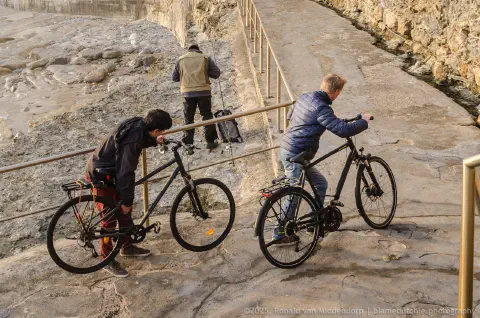
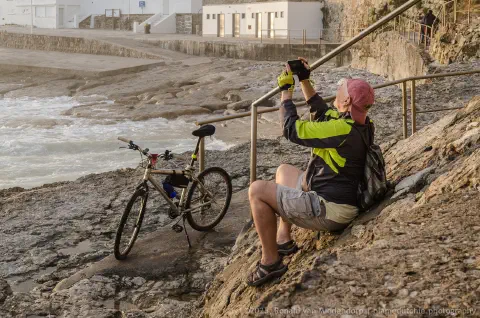
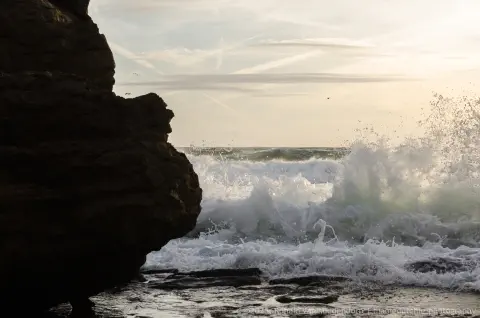
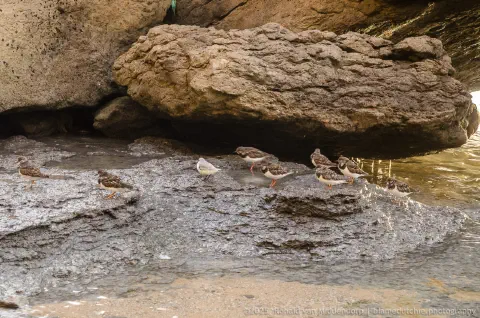
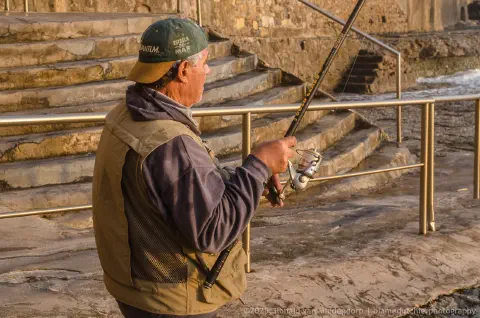
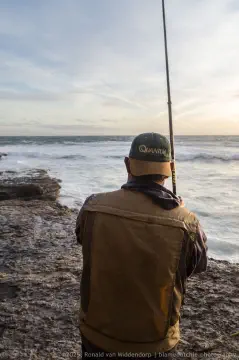
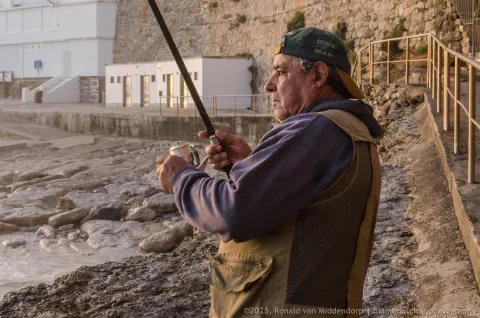
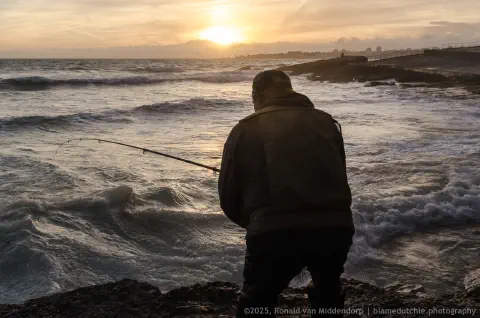
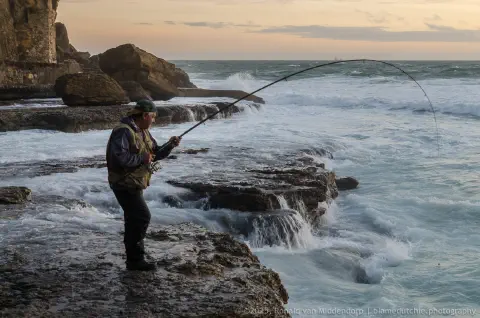
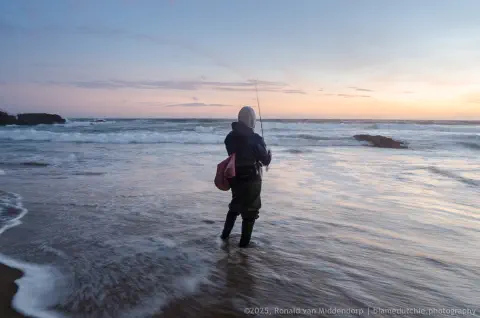
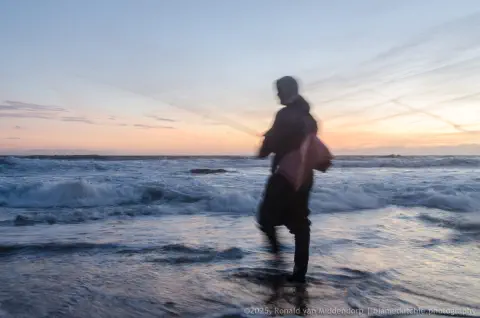
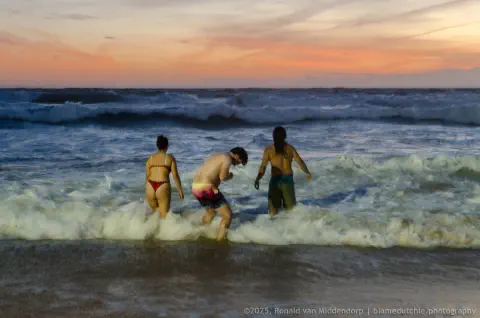
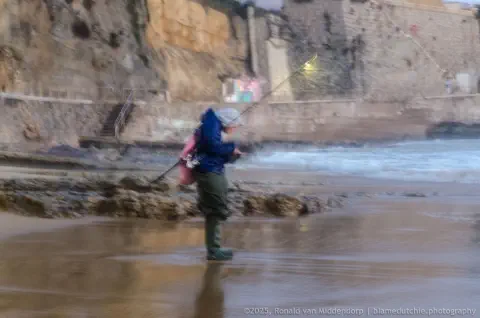
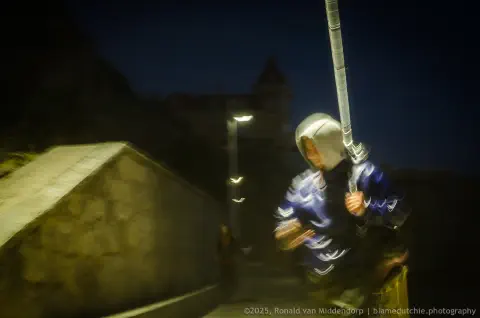
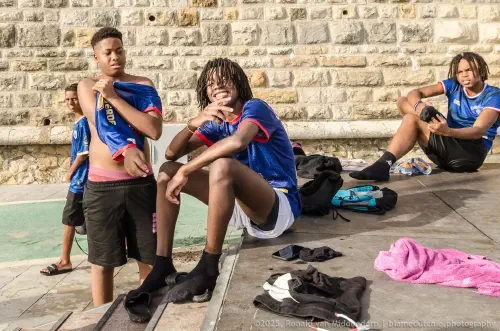
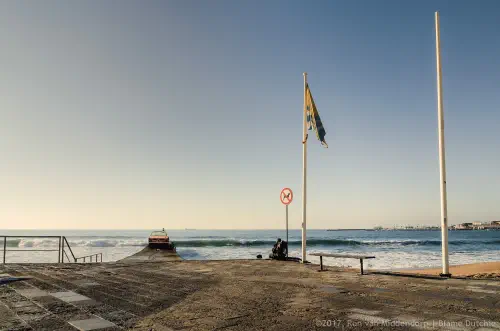
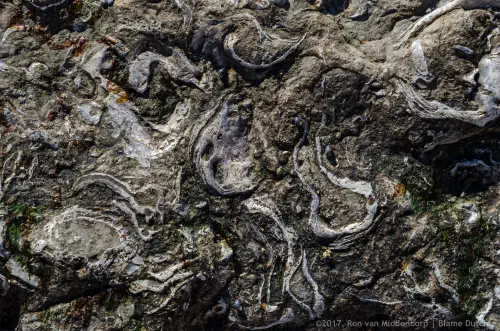
What are your thoughts on this post?
If you liked this post, feel free to use one of the sharing options below. It always makes me smile when I see someone enjoyed it.